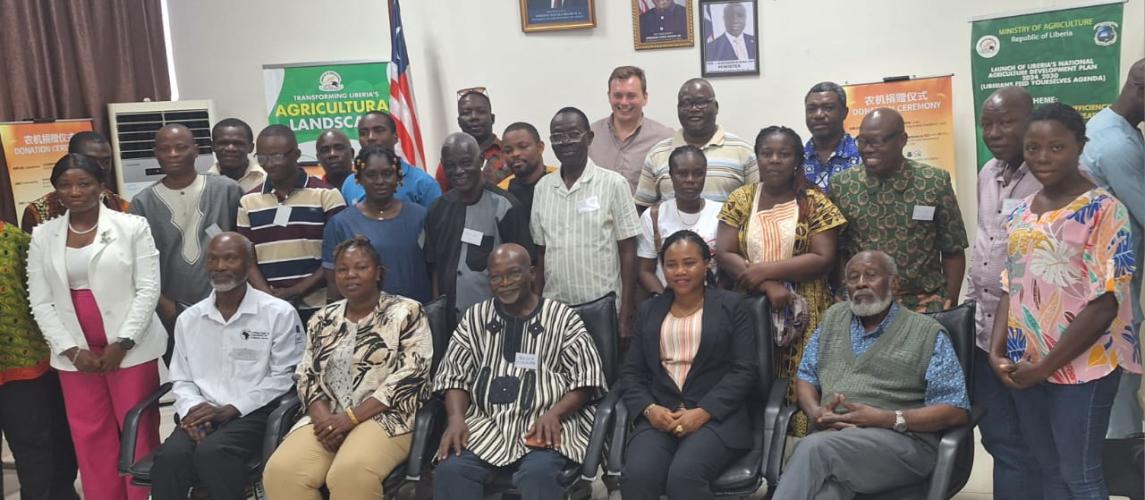
Agriculture Ministry and LIFAAS Host Generative AI Workshop to Strengthen Extension Services
[Monrovia, Liberia. October 1, 2025 ]– The Ministry of Agriculture (MoA), in collaboration with the Liberian Forum for Agricultural Advisory Services (LIFAAS), has hosted a one-day workshop on Generative Artificial Intelligence (AI) to explore how new technologies can bridge extension gaps and improve the delivery of agricultural advisory services.
The workshop brought together extension officers, civil society organizations, farmer-based groups, cooperatives, and private sector service providers to discuss how AI can increase productivity, profitability, and access to information for farmers, particularly those in remote communities.
Dr. Moses Zinnah, Advisor at LIFAAS, underscored the importance of the initiative in closing Liberia’s wide farmer-to-extension officer gap:
“We are here to get exposed to the benefits of Artificial Intelligence in agriculture, particularly how extension officers and researchers can use it to work more closely with farmers. In Liberia, the ratio of one extension officer to farmers is estimated at over 1 to 40,000, which makes it impossible to reach every farmer directly. AI gives us a chance to close that gap. From experiences in countries such as Malawi and Kenya, we see that digital tools can transform agriculture by delivering customized information in local languages directly to farmers’ phones, even in remote villages.”
Facilitator Eliot-Jones Garcia, Senior Research Analyst from the International Food Policy Research Institute (IFPRI), emphasized the need to design AI systems that reflect real agricultural challenges:
“I am here to guide extension officers through the design of generative AI for advisory services. Artificial Intelligence is becoming more accessible, and if we are to use it, we must ensure that the expertise of extension workers is integrated into these systems. Starting from the ground up is the best way forward.”
He further explained that AI should empower farmers rather than dictate to them, reassuring participants of its role as a complementary tool:
“These platforms should be intuitive, listening to farmers and guiding them through their challenges rather than simply instructing them. When designed this way, AI can open up new possibilities for farmers, moving beyond the limitations of static extension systems. People often worry that AI will replace their expertise, but in truth, it is meant to strengthen and expand their capacity, not take it away.”
The workshop explored both the opportunities and constraints of generative AI as well as how extension officers’ knowledge can help shape platform design. By the close of the session, participants expressed optimism that AI could significantly enhance Liberia’s extension system, making agricultural knowledge more accessible, localized, and impactful.
